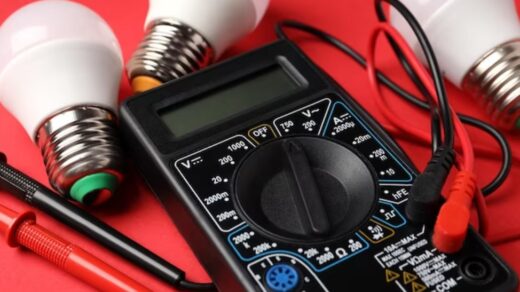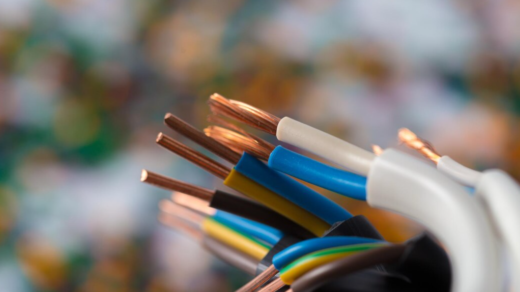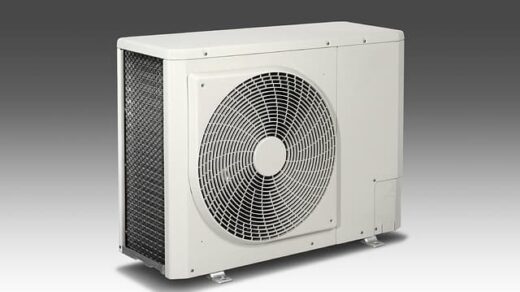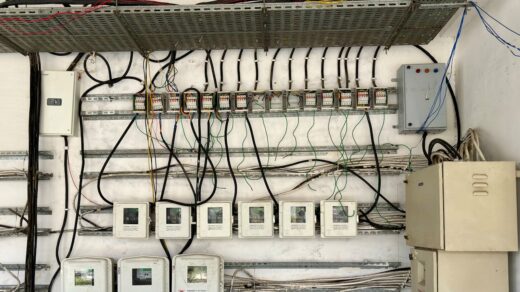Blown fuses are a common experience shared by many, and for those residing in homes with older electrical systems, they might even be a recurring challenge. Several reasons can lead to an appliance consistently causing a fuse to blow, ranging from internal appliance issues to broader electrical system concerns. Regardless of whether one is dealing with an isolated incident or contemplating an extensive overhaul of their home’s electrical infrastructure, a plethora of strategies and solutions are available to effectively address and mitigate the issue of blown fuses.
What Is a Blown Fuse?
As the world of home electronics evolves, many households have moved from traditional fuse boxes to more advanced electrical panels featuring circuit breakers. However, the expression “blown fuse” remains in our vernacular, symbolizing unforeseen interruptions in electrical power. This term can encompass a range of scenarios, not all directly related to the physical fuses.
Historically, a fuse was designed with a metal element encased in wire, which would melt when subjected to excessive heat, interrupting any power anomalies and rendering the fuse ineffective. Once a fuse “blew” in this manner, it required replacement. Today’s systems, on the other hand, frequently employ circuit breakers. These modern devices serve as protective mechanisms, cutting off electrical flow when they detect potential overload hazards, ensuring the safety and longevity of the system.
The Role of Circuit Breakers
A circuit breaker is equipped with an internal switch that trips in response to electric faults or surges, momentarily disconnecting the circuit. Once tripped, circuit breakers often reset, allowing them to be toggled back on without any replacements.
Steps to take if a device continually trips your breaker:
- Identify Overloaded Circuits: If you have a circuit with numerous devices plugged in and operational, it could surpass the circuit’s capacity. To counteract this, the circuit breaker’s safety mechanism will shut it down. To mitigate this, only use one extension cord per outlet and avoid connecting multiple extensions to one another. Verify the compatibility of your circuit breakers and fuses with your devices and circuitry. If unsure, consulting experts like Brennan Electric can provide clarity. Additionally, unplugging idle devices can prevent circuit overload;
- Shift Your Appliance: If a specific appliance frequently trips the breaker, consider relocating it. Prior to this, get in touch with Brennan Electric so our seasoned professionals can inspect the fuse’s amperage linked to that appliance’s circuit. The amp rating depicts the circuit’s power tolerance. By gauging the appliance’s power consumption, they can deduce the circuit’s actual burden. If the appliance’s power usage surpasses the circuit’s limit, you might need to shift it to a more accommodating circuit. Ensure the appliance remains unplugged for some time before its subsequent use;
- Ensure Correct Fuse Installation: With a plethora of fuses available, varying in size, shape, and function, installing the appropriate one is crucial. A misplaced fuse can wreak havoc. If a fuse in your panel malfunctions, reach out to a proficient electrician without delay. For safety reasons, steer clear of the fuse box. Transitioning from a fuse panel to an advanced circuit breaker is a prudent choice. Brennan Electric’s accredited electricians can assist you in navigating this issue;
- Address Damaged or Obsolete Outlets: Defective connections or wiring might induce power fluctuations, resulting in a tripped breaker or blown fuse. The root cause might not always be the device or the breaker, but the malfunctioning or outdated outlet itself. For instance, it’s mandatory for most bathrooms to have GFI outlets, designed to trip at the outlet rather than the fuse box, especially with high-load devices like hairdryers. Always have a qualified technician examine and mend any defective outlets in your residence. Schedule a comprehensive home inspection with us, and our adept electricians will pinpoint potential issues that might be the culprits. Rectifying these outlets offers peace of mind;
- Rectify Any Faulty Wiring: Compromised wiring might escape detection, given its concealed nature within your home. There are indicators to ascertain if your residence possesses faulty wiring.

Detecting potential wiring issues in your home:
Ensuring the safety and functionality of the electrical system in your home is of utmost importance. To determine potential wiring issues, consider the following signs:
| Indicator | Description |
|---|---|
| Auditory Indicators | Be alert to unusual sounds like humming or buzzing from electrical outlets, switches, or appliances. |
| Visual Indications | Watch for unexpected dimming or flickering lights, which can suggest voltage fluctuations or wiring issues. |
| Circuit Behavior | Regular tripping or disruptions in the circuit breaker may hint at an overloaded system or wiring faults. |
| Outlet Temperature & Sensations | Outlets should not feel warm or hot to the touch; vibrating outlets may indicate underlying issues. |
| Olfactory Signals | Unusual odors, especially burnt or acrid smells, may signal overheated wires or malfunctioning devices. |
| Physical Evidence | Look for signs of burning or heat damage around outlets and switches, such as scorch marks or discoloration. |
| Wire Condition | Examine accessible wires for degradation, nibbling, fraying, or general wear and tear as potential issues. |
Should you notice any of these warning signals, it’s essential to avoid tackling the issue on your own, given the complex and perilous nature of electrical tasks. Compromised or aging electrical setups can present grave threats, encompassing everything from electrocution risks to the possibility of domestic fires. Your safety is paramount: without delay, turn off your home’s power at the central board and seek expert advice. Our adept team of electricians is on standby to aid and guarantee that your household’s electrical infrastructure is secure and operational.
Book an Electrical Assessment
When planning to buy or sell a property, an electrical review often complements the comprehensive home inspection. For prospective homeowners, such an evaluation provides insight into the home’s electrical safety and efficiency, ensuring any significant issues are addressed prior to purchase.
Consider booking an electrical assessment:
- Prior to substantial home renovations;
- In homes with dated electrical systems;
- If an assessment wasn’t conducted before you acquired the property;
- Following damage from natural events like storms or earthquakes;
- Amid persistent or abrupt electrical challenges;
- When requested by your home insurance provider.
Repairing a Tripped Fuse

With the rise of electronic devices permeating our households, gaining a grasp on fundamental electrical precautions and diagnostic skills proves invaluable for residents. While intricate electrical challenges demand the knowledge of a certified technician, there are simpler actions and inspections residents can perform with confidence. Before initiating any electrical procedures, it’s crucial to ensure all devices are powered down, minimizing the chance of electrocution. One of the essential steps involves locating the main electrical hub, typically positioned near the electricity meter and housed in a unique enclosure in the primary hallway. This hub acts as the heart of your dwelling’s electrical framework. Knowing its position is essential, especially during emergencies when an immediate cessation of power is required for safety reasons.
Prioritize Safety
Handling electricity requires extreme caution. Always stay clear of water when using electrical devices and heed warning labels on appliances. Before engaging with exposed wires, turn off the main power. If you’re uncertain or lack experience, it’s essential to call a professional to address electrical concerns in your home. Never compromise on your safety when working with electricity.
Conclusion
Navigating the intricacies of electrical systems in homes, particularly concerning blown fuses, demands a blend of knowledge and caution. With the evolution of electrical setups from traditional fuse boxes to modern circuit breakers, understanding the cause and remedy for power disruptions remains crucial for homeowners. While some minor issues can be managed independently, enlisting the expertise of a professional electrician is indispensable for major concerns. In essence, the safety, efficiency, and longevity of your home’s electrical system hinge on proactive measures, timely interventions, and a commitment to prioritizing safety at all junctures.








